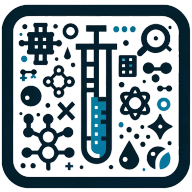6 How to Advocate for Yourself During the Drug Testing Process
Navigating the drug testing landscape requires not just knowledge but the confidence to stand up for oneself. This post delves into practical strategies for ensuring accurate results, from requesting alternative testing methods to understanding and documenting company policies. Empowerment begins with being informed, and knowing your rights is the first step towards protecting them.
- Advocate for Accurate Drug Test Results
- Request Alternative Testing Methods
- Disclose Complete Medication History
- Seek Legal Counsel for Rights Protection
- Understand Company Policy on False Positives
- Document the Entire Testing Process
Advocate for Accurate Drug Test Results
I recall a situation where a colleague's initial drug screening came back with a false positive for a substance she had never taken--a result likely due to a prescribed medication. Recognizing the potential career impact, I advocated on her behalf by gathering her complete medical history, contacting the testing laboratory to request a more specific confirmatory test, and ensuring that all relevant documentation was reviewed. This proactive approach not only helped clear her record but also highlighted the importance of verifying unexpected results before making any critical decisions.
My advice for anyone facing a similar challenge is to stay informed and assertive. Always keep a detailed record of any medications or supplements you're taking, understand your rights regarding drug testing, and don't hesitate to request a retest if the results seem questionable. Clear communication, proper documentation, and seeking expert guidance--whether from a healthcare provider or legal counsel--are key steps in effectively advocating for yourself or others during the drug screening process.
Request Alternative Testing Methods
During the drug testing process, requesting a retest with a different method can be a crucial step in self-advocacy. Different testing methods can yield varied results, potentially clearing up any false positives. It's important to understand that no test is perfect, and errors can occur.
By asking for an alternative testing method, individuals demonstrate their commitment to accuracy and fairness. This approach also shows a willingness to cooperate while protecting one's interests. Take the initiative to request a retest using a different, perhaps more accurate, method to ensure the most reliable results.
Disclose Complete Medication History
Providing a detailed medication history to testers is an essential aspect of self-advocacy during drug testing. Many legitimate medications can cause false positives, leading to unwarranted concerns. By openly sharing information about prescribed drugs, over-the-counter medications, and supplements, individuals create a clear picture of their health situation.
This transparency helps testers interpret results more accurately and reduces the risk of misunderstandings. It also demonstrates a proactive approach to the testing process. Be prepared to provide a comprehensive list of all medications and discuss their potential impacts on test results.
Seek Legal Counsel for Rights Protection
Consulting legal counsel for rights protection is a smart move when navigating the drug testing process. Laws regarding workplace drug testing can be complex and vary by location. An attorney with experience in employment law can provide valuable insights into individual rights and company obligations.
They can also advise on the best course of action if disputes arise. Legal representation ensures that all procedures are followed correctly and fairly. Don't hesitate to seek legal advice to understand and protect your rights throughout the drug testing process.
Understand Company Policy on False Positives
Understanding company policy on false positives is crucial for effective self-advocacy. Many organizations have specific procedures in place to handle disputed test results. Familiarizing oneself with these policies can help individuals navigate the process more effectively.
It's important to know what steps can be taken if a false positive occurs and what evidence may be required. This knowledge empowers employees to act promptly and appropriately if issues arise. Take time to review and understand your company's drug testing policies, particularly those related to false positives and appeals.
Document the Entire Testing Process
Documenting the entire drug testing process is a powerful tool for self-advocacy and potential appeals. Keeping detailed records of dates, times, conversations, and procedures creates a clear timeline of events. This documentation can be invaluable if questions or disputes arise later.
It also demonstrates a serious and organized approach to addressing any concerns. Thorough records can support an individual's case if an appeal becomes necessary. Start a detailed log of your drug testing experience, including all interactions and outcomes, to ensure you have a complete record if needed.


